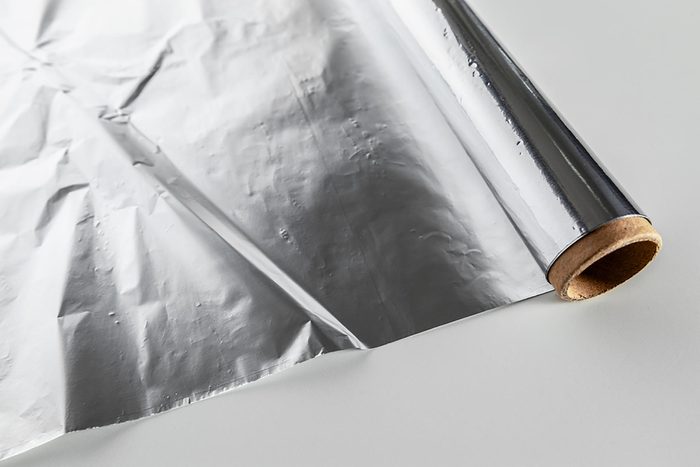Why Aluminum Foil Has a Shiny and a Dull Side

Wondering which side you should use? Read on.
It’s a well-established question and one that we’ve been too afraid to ask our mothers: Should we use the shiny or the dull side of aluminum foil when we cook? And have we been doing it wrong this entire time?!
Concerned cooks, you can breathe a sigh of relief: As it turns out, there’s no “correct” side of aluminum foil to use when cooking so using it on either side is not one of the cooking mistakes that could ruin your food. According to the Huffington Post, they’re both equally effective at heating your food—so just choose whatever side you prefer.
(Related: 5 Awesome Cookbooks to Cure the Kitchen Blues)
If there’s no trick to it, then why, exactly, does aluminum foil have a shiny and a dull side in the first place? Experts at Reynold’s Kitchen say that the difference between the two sides is due to a manufacturing process called milling, during which heat and tension is applied to stretch and shape the foil. Two layers of foil are pressed together and milled at the same time, because otherwise, it would break.
“Where the foil is in contact with another layer, that’s the ‘dull’ side,” Reynold’s explains. “The ‘shiny’ side is the side milled without being in contact with another sheet of metal. The performance of the foil is the same, whichever side you use.”
But pay attention if you are using non-stick foil; in that case, there is a difference between the two sides. Since the non-stick coating is only applied to one side, you’ll want to use the dull side. Side note: There will be a label that designates the “non-stick side” in case you forget.
However, aluminum foil could pose a serious risk to your health—so maybe you should stop cooking with it altogether.




